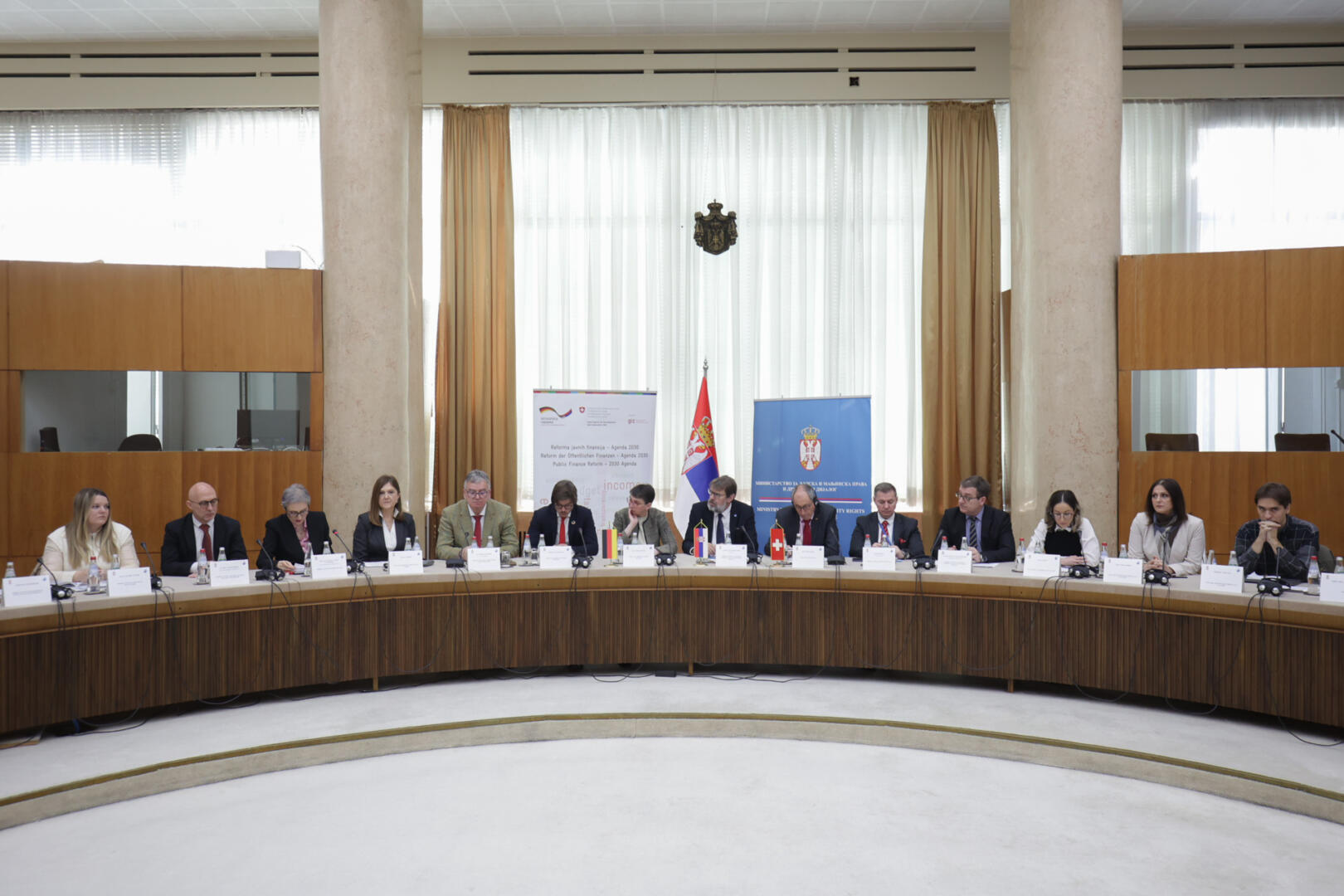Serbia invests significant efforts on the way to achieving the Sustainable Development Goals, adopting the principles of sustainability and reducing social injustice in planning and strategic documents, it was said at the conference „Achieving Sustainable Development Goals through Dialogue“. Key stakeholders in the implementation of the 2030 Agenda were gathered by the Ministry of Human and Minority Rights and Social Dialogue, in cooperation with the project „Public Finance Reform – Agenda 2030“ supported by the Governments of Germany and Switzerland.
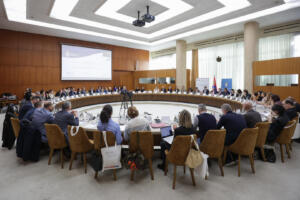
Minister for Human and Minority Rights and Social Dialogue Tomislav Žigmanov pointed out that Serbia is committed to achieving the goals contained in the United Nations 2030 Agenda. „The critical sustainable development goals are those related to solving the problems of the most vulnerable and jeopardized groups – eradication of poverty, better education, strengthening the position of young people, gender equality, healthy environment, as well as improving respect for human rights and the rule of law,“ minister Žigmanov said, stressing the support of Germany and Switzerland, as two countries that are important for Serbia in this process.
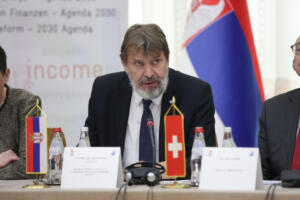
Anke Konrad, Ambassador of Germany to Serbia, said that social injustice in the form of lack of access to education, health services, housing opportunities not only affects individuals, but as a global phenomenon affects entire societies. „If we want to bridge social injustice, it is necessary that we have an appropriate plan at the government level, but also to include local self-governments, think tanks and civil society organizations, as well as state institutions in the process,“ Ambassador Conrad said and expressed her satisfaction that Germany, within the framework of German Development Cooperation projects, can provide support to Serbia on the way to overcoming social injustice and inequality.
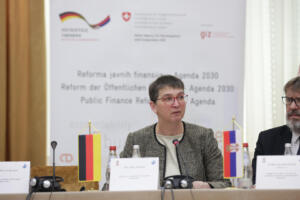
Swiss Ambassador to Serbia Urs Schmid said that Switzerland supports social dialogue on achieving the Sustainable Development Goals. „Our position is that the 2030 Agenda is a comprehensive transformative process at the level of society as a whole and that it is very important that it be integrative and cooperative. Therefore, it is of crucial importance that the dialogue is conducted society-wide and that local self-governments, representatives of the academic community, civil society and the private sector be involved in this dialogue.“
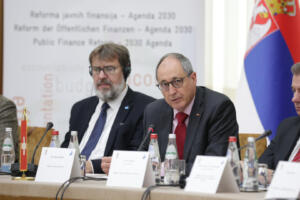
Duško Pejović, President of the State Audit Institution of Serbia, said that the conducted performance audit is a sign of Serbia’s determination and readiness to implement the 2030 Agenda. „This audit was carried out at the central level, and we plan to cover the topic of implementation of the 2030 Agenda at the local level, because it is precisely at the local level that citizens exercise the highest rights.“
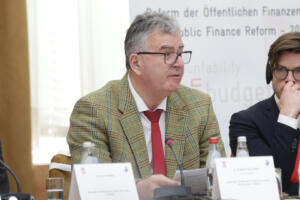
Katarina Lalić Smajević, Acting Assistant Minister for Multilateral Cooperation in the Ministry of Foreign Affairs, emphasized the importance of continuous cooperation and coordination with international partners and pointed out that the Ministry of Foreign Affairs, within its competences, pays significant attention to achieving the goals of the United Nations 2030 Agenda for Sustainable Development.
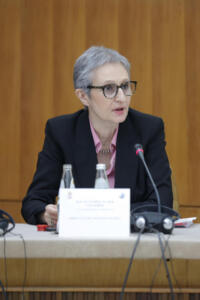
The conference marks a further step in fostering and further developing joint cooperation and coordination among all relevant actors in achieving the SDGs in Serbia in accordance with the 2030 Agenda.


